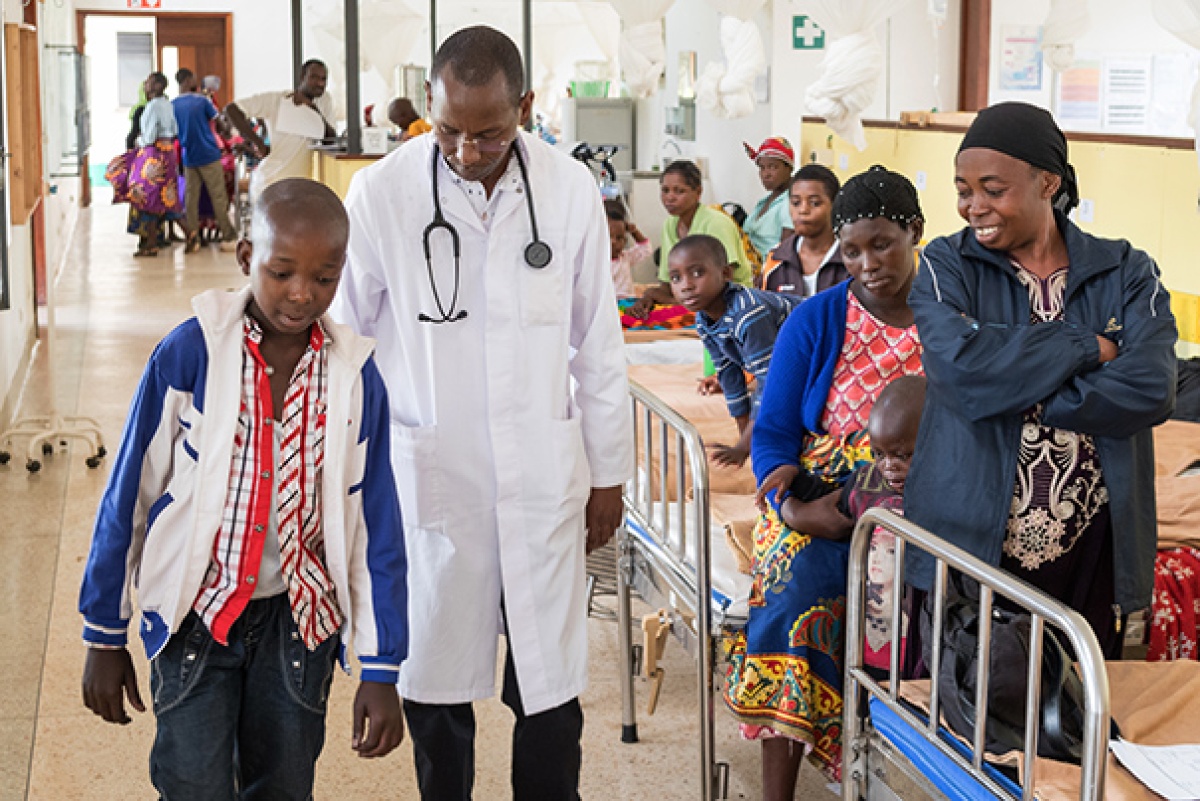Hospital in the Hills: Rising Above Cancer in Rwanda
Posted on Dec 22, 2016

Rwanda’s mountaintops are sometimes hidden in clouds. Rising green and blue, their outlines are softened by mist. Lines of farmers' crops wrap their lower slopes.
It’s hard to believe anything could go wrong in such a tranquil place, but people get very sick. Villages with broken water pumps, dirty streams, and crowded houses lead to common killers, such as diarrhea among kids and tuberculosis among adults. Clinics with a couple of nurses and a sometimes-stocked medicine cabinet mean illnesses aren’t easily overcome.
When it comes to diseases that are difficult to treat, such as cancer, the consequences can be disastrous. Families who learn their loved ones are ill have nowhere to go, unless they can afford care in the capital, Kigali, or across the border. They’re unlikely to fare much better in the region, however, since cancer facilities—let alone oncologists—are rare.
It’s a harsh truth in a country that’s among those with rapidly increasing rates of cancer. The World Health Organization reports that 60 percent of cancer cases diagnosed every year are in Africa, Asia, and Central and South America—the so-called developing world. These countries spend only 6 percent of what is spent globally on cancer, reflecting, simply, the severe lack of oncology services. Seven percent of deaths in Rwanda are from cancer. (In the U.S., it’s less than 1 percent.) That’s about 5,000 lives lost a year.
Two years ago, Tyty Malwira was desperate. Her 11-year-old son Kachonga Dieu Merci had stage three Hodgkin’s lymphoma, but she couldn’t find proper care in her home country of Congo, or in Burundi.
She ended up at Butaro Hospital’s Cancer Center of Excellence, which Partners In Health and the Ministry of Health built atop one of Rwanda’s hills in Burera, a northern district. Trained physicians and nurses are on hand to administer chemo and care for patients, who have totaled 5,000 since the center opened in 2012.
It’s one of a kind—the only facility offering advanced oncology services in a rural region in East Africa. Lauren Greenberg, PIH’s oncology program associate, explains why: Setting up cancer services is an immense task, especially in a low-income country. One patient needs a range of care, from diagnosis to treatment, and then years of follow-up care.
“It’s not an either-or,” she says. “It’s everything.”
This includes oncologists and trained nurses, laboratories with equipment and supplies for pathology, a CT scanner, radiation, chemotherapy, surgery, mental health support, and many, many checkups during and following treatment.
PIH has been working on achieving all of these, one piece at a time. The next goals include bringing a CT scanner and radiation therapy to the hospital. Currently, PIH funds patients’ travel to Kigali for scans, as well as flights to Kenya for radiation. It’s a temporary solution, but one that works for now.
The hilltop hospital certainly worked for Kachonga, who was treated in one of its colorful wards overlooking the hills, while patients walked winding stone paths outside. It’s where you’d want your loved ones to heal.
And heal he did. Sitting with his mother on a wall facing the valley in November, he’s officially in remission and will return in a year for his next checkup.
Malwira leans her head against Kachonga’s. She remembers that when she first brought him to Butaro, doctors told her to prepare herself for his death, but she was determined not to accept this.
“I always kept hope.”
Today, Malwira wants Kachonga to become a mechanic—he has a knack for fixing things, she says—but Kachonga doesn’t agree. His sights are set on becoming a doctor.
 |
|
Tyty Malwira and Kachonga Dieu Merci at Butaro Hospital in Rwanda. Photo by Aaron Levenson / Partners In Health |

